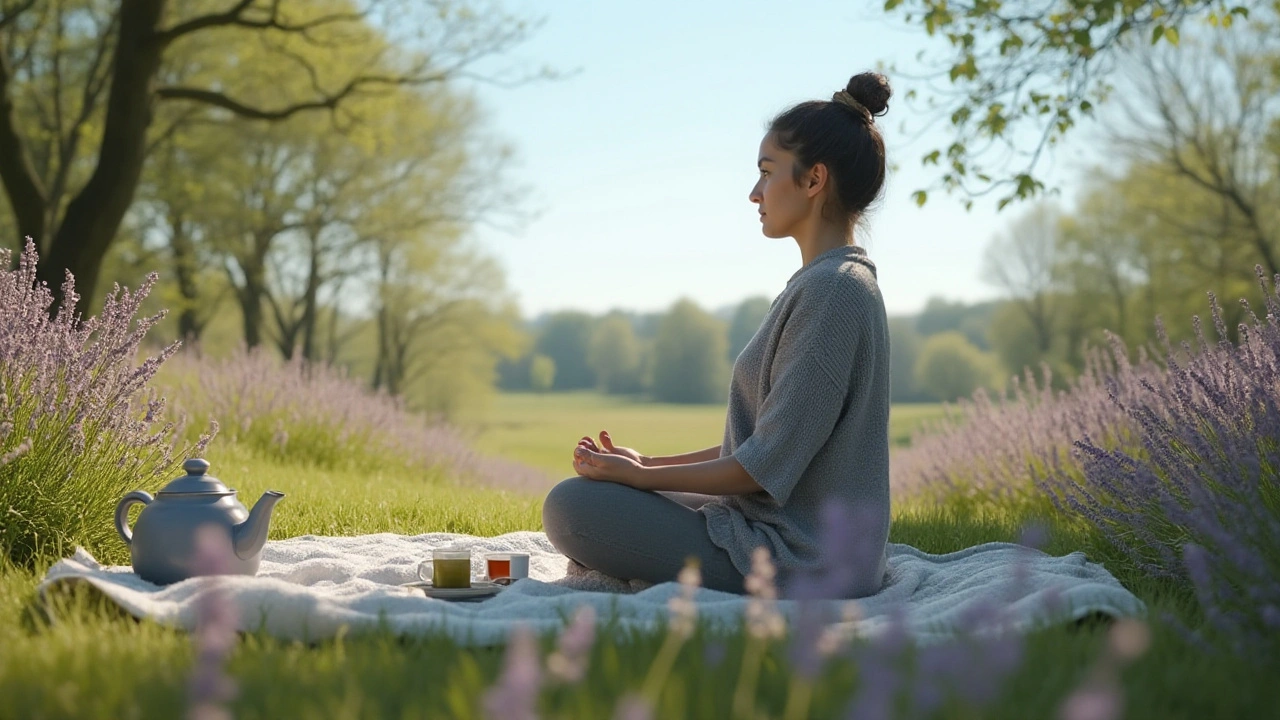Anxiety Relief: Quick Help and Lasting Strategies
Anxiety hits everyone differently. Sometimes it’s a sudden rush, other times a low hum that follows you all day. You want fast ways to calm down and real habits that stop anxiety from returning. Below are simple, proven tactics you can use right away and strategies to reduce anxiety over time.
Fast techniques you can use now
Box breathing: breathe in for 4, hold 4, out 4, hold 4. Repeat until you feel steadier. Grounding (5-4-3-2-1): name 5 things you see, 4 you can touch, 3 you hear, 2 you smell, 1 you taste. Progressive muscle relaxation: tense each muscle group for 5 seconds, then release. Splash cold water on your face or hold a cold bottle - physical sensations help shift your nervous system. Move: a short walk or a few easy stretches can drop adrenaline and clear your head.
Daily habits that reduce anxiety
Sleep matters. Aim for consistent bed and wake times and wind down without screens for 30 minutes. Move daily - 30 minutes of brisk walking or any activity you enjoy helps mood and sleep. Cut back on caffeine and alcohol; they can make anxiety worse. Structure your day with small, achievable tasks and take regular breaks. Eating regular, balanced meals keeps blood sugar stable, which helps mood swings. Practice a short mindfulness or breathing routine each morning to start calmer.
Use practical tools. Schedule a 15-minute "worry time" where you jot down concerns and possible steps - this gives your brain permission to park worries until later. Break big problems into tiny next actions so they feel solvable. Keep a short list of distraction activities (call a friend, listen to a song, wash dishes) for moments when anxiety spirals. Journaling one sentence about what you’re grateful for can also shift perspective.
Therapy and medication work. Cognitive Behavioral Therapy (CBT) and exposure therapy are proven to lower anxiety long term. Talk therapy helps change patterns of thinking and behavior. Medications like SSRIs may be helpful for chronic anxiety; benzodiazepines can calm severe spikes but are usually short-term. Always consult your doctor before starting or stopping medication.
Apps and supplements: mindfulness apps, guided breathing tools, and habit trackers make daily practice easier. Some people find magnesium or certain herbal supplements helpful, but evidence varies - check with a clinician before trying them. Avoid relying on supplements as the only solution.
Get help if anxiety stops you from working, sleeping, or enjoying life, or if you have panic attacks, thoughts of harming yourself, or trouble breathing. Those are signals to contact a healthcare provider or go to urgent care.
Want more tips? Browse our anxiety relief posts for guides on treatments, lifestyle changes, and safe medication info. Small steps add up - start with one technique today and build from there.
Set a phone alarm to breathe every few hours, join a support group or forum, and track triggers in a notes app. Ask local clinics about sliding-scale fees or community mental health options for affordable care near you today.
Exploring Natural Remedies for Anxiety Instead of Buspirone
In a world where anxiety can overwhelm, people often search for effective remedies to find peace. While medications like Buspirone offer relief, there’s growing curiosity about natural alternatives. This article delves into various herbs, lifestyle changes, and mindfulness practices that help manage anxiety symptoms. These natural methods can be a great supplement or alternative to traditional medication, offering a holistic approach to mental health.

